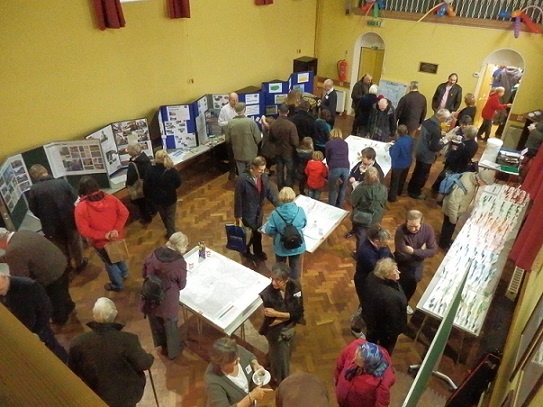Neighbourhood planning: The snakes and ladders of NDPs
A typical neighbourhood planning consultation
2013-2019: Looking back at six years of supporting NDPs
Having been in the business of NDP consultancy for six years it seems like an appropriate time to take stock...
What is an NDP anyway?
Officially, NDP stands for Neighbourhood Development Plan.
NDPs were borne out of the 2011 Localism Act, as an attempt to give greater influence over planning decisions to local neighbourhoods (parishes). It’s a lengthy process, where local planning policy is developed following detailed community and stakeholder consultations, culminating in a local referendum.
For some of our NDP clients, we suspect the acronym may have other meanings, such as ‘Nailing Down Planning (policy at a local level)’, or ‘Nutmegging Developer Predators (before they can attack)'. Or even, at the other extreme, ‘No Damn Point’!
This blog aims to explore the reasons for those different responses, and is based on extracts from our own internal review. We have supported 45 NDPs, mainly in the West Midlands.
How are NDPs fairing overall?
Of our 45 clients, over a third have so far had their plans adopted, but a few may struggle to reach a successful outcome (indeed, some have already struggled). The rest will make it, but approximately 20% have required a great deal of support to get them over the line.
The Business context
We entered this market when NDPs were new for everyone, both in a technical and a cultural sense. Planning policy had hitherto been the preserve of district authority officials and members. Handing some of those policy development powers over to Parish Councils and their largely unqualified (and unpaid) working parties has been challenging for both the communities concerned and for the planners in county halls. As a result all parties, including consultants, have been on a steep learning curve.
Furthermore, the process itself is lengthy and complex, and very few projects have been completed in less than two years (with some taking five years!) And, to add further to the learning curve, the process has also evolved in the seven years since its inception to accommodate shifts in government policy and judicial challenges.
Impact of Local Dynamics
Some NDP projects have been very successful, not only in terms of adoption, but the quality of the project work; i.e. governance, project management, consultations, and policy development.
Our conclusion from our extensive work in this field is that the likelihood of a group thriving or struggling is more dependent on local dynamics and resources than the support given by Data Orchard or any other consultant.
In a broad sense, the consultant uses the same principles and practices with all of its clients, so, in theory, the outcomes, good or bad, should be fairly consistent. In our experience, the fact that success varies, both in terms of outcomes and timeframes, is mainly due to a range of local phenomena.
So, what makes a successful NDP?
Below are a few critical findings taken from our review:
Working group thrives
Effective leadership
Leader or leaders involve the whole group, keep them informed, manage conflict, seek consensus, generate teamwork and a sense of shared purpose.
Proactive Parish Council support
Interest and commitment from Parish Council, with frequent monitoring of, and active support for, the project.
Consistent Working Group resource
Size doesn’t matter that much as long as there is dependable long-term commitment and contribution from a few members.
For the community
Whole group focused on community benefits.
Tenacity and stamina
Working Group has tenacity and stamina, plus a philosophical attitude towards setbacks. A realistic understanding that writing local statute requires time and steely resolve.
Consensus
Whole group reaches consensus on project methodologies and policy direction.
Communication
Good levels of community consultation, engagement and communications. Regular public testing of ideas, gathering feedback, and adjusting the plan accordingly.
Working group struggles/fails
Ineffective leadership
Autocratic, directing rather than involving, low awareness of individual needs and group dynamics, failure to delegate or consult.
Lack of support from Parish Council
Low levels of interest and support from Parish Council, and sometimes opposition or ambivalence towards the project from a minority of councillors.
Inconsistent Working Group resource
Change of membership or loss of key personnel; e.g. death, illness, moving away, family commitments, falling out, etc.
For own interests
One or more of group pursuing self-interest, either status, pecuniary advantage, or both. (In some circumstances one person can disrupt the whole process).
Easily defeated
Group is readily deflated by challenge, conflict or unforeseen obstacles. (These are unpaid volunteers who may not have fully realised what they were signing up for!)
Conflict
One or more of group in conflict with methodology and direction, either out of self-interest or genuine principled disagreement.
Closed process
Low levels of consultation, poor communication and inadequate record keeping. Poorly signposted proposals, leading to unexpected surprises for public, stakeholders and even the Parish Council. This can lead to concerted opposition at the latter stages.
Find out more
You can find out more about our work in collecting and analysing data to support NDPs, or get in touch with us at Data Orchard for a no-obligation chat.

